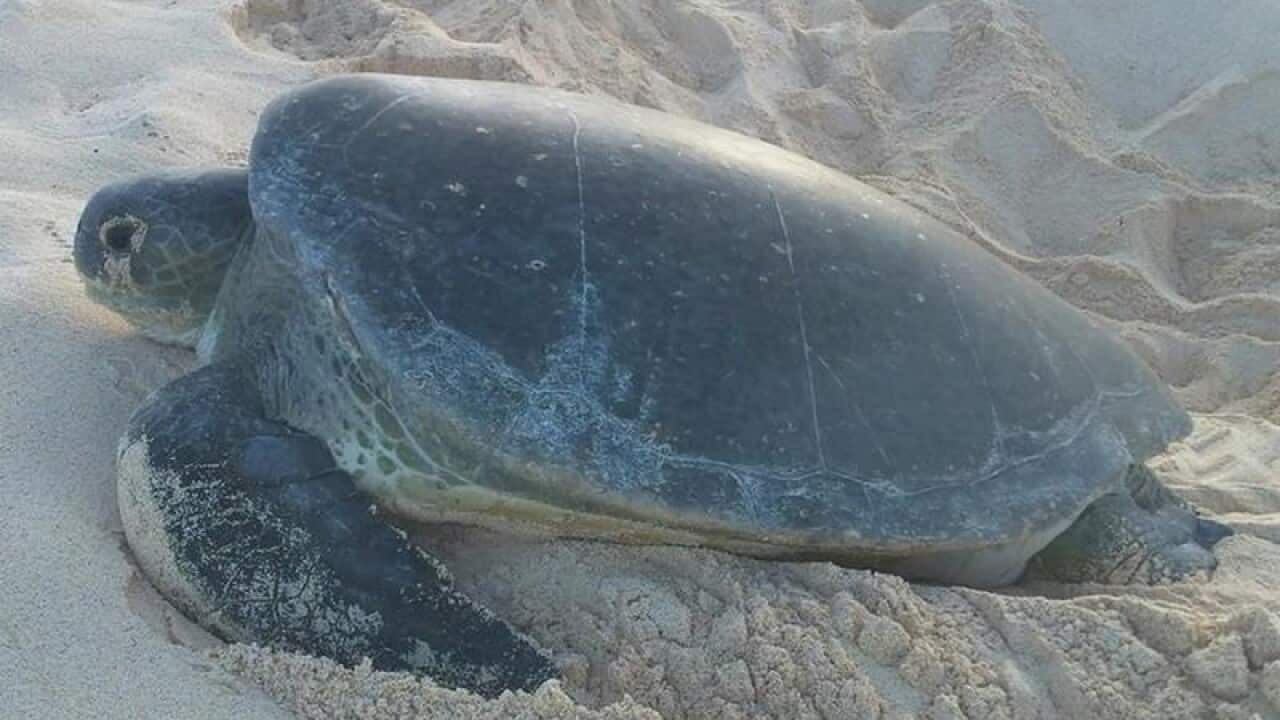Warmer temperatures are leading to the almost total feminisation of Green Turtle populations in the northern Great Barrier Reef, with more than 99 per cent of eggs producing females.
The rising temperatures cause warmer incubation which leads to more female hatchlings being born, says a study published on Tuesday in the Current Biology journal.
"Finding that there are next to no males among young northern Green Turtles should ring alarm bells," WWF Australia chief executive officer Dermot O'Gorman said.
Scientists believe the northern Great Barrier Reef rookeries have been producing primarily females for more than two decades. Green Turtles on the southern Great Barrier Reef were less female-biased with 65 to 69 per cent originating from the cooler rookeries.
Green Turtles on the southern Great Barrier Reef were less female-biased with 65 to 69 per cent originating from the cooler rookeries.

A sea turtle near Lady Elliot Island, Bundaberg in 2011. Source: AAP
"This research is so important because it provides a new understanding of what these populations are dealing with," said lead author Michael Jensen from the National Oceanic and Atmospheric Administration.
Queensland's chief scientist Colin Limpus told ABC radio that artificial rain was being considered as they look for solutions to a problem where "there's no established protocol" anywhere in the world.
Mr O'Gorman agreed "all is not lost" for the Green Turtle and scientists could find ways to lower nest temperatures., including by installing shade cloths.
"Australia must adopt ambitious climate change targets that will save the Reef and its unique creatures," he said.



